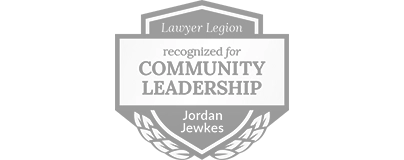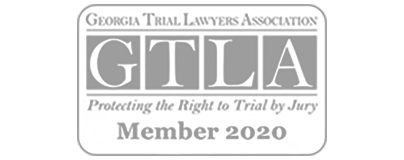Home | Glossary of Personal Injury Terms | Property Damage
Property Damage
In the aftermath of a car accident, individuals often face various types of losses. These losses generally stem from two main categories — bodily injuries and property damage. While bodily injuries encompass the physical and emotional toll of the incident, property damage pertains specifically to financial losses related to material possessions.
What Constitutes Property Damage?
Property damage refers to any harm inflicted on belongings that is separate from personal injuries. In the event of a vehicle accident, this may result in harm to your car and potentially impact any personal belongings that were involved in the incident. For instance, if you were riding a bicycle, damage could also include the loss of your safety gear.
Additionally, damage to property encompasses not only automobiles and personal belongings but can also include real estate. If a vehicle crashes into a building, the structural damage falls under this category. Similarly, minor incidents, such as damaging a mailbox, also qualify.
Assessing Property Damage
The extent of damage is determined by the nature of the incident and the resulting impact on the property. If an item is completely lost or destroyed, the compensation sought typically reflects its replacement value. For example, if a driver collides with your brand-new car, the financial responsibility for damages will be greater than if they hit an older model.
This principle similarly applies to personal belongings. If your smartphone is destroyed in the accident, the cost of replacing it varies significantly depending on its age and model.
Several methods can be used to calculate losses when a property sustains partial damage:
- Repair Costs. The expenses incurred for restoration.
- Diminished Value. The reduction in worth due to prior damage.
- Loss of Use. The inconvenience and financial impact of being without the item during repairs.
To illustrate, consider a scenario where a vehicle’s radiator is damaged in an accident. The financial implications might encompass:
- The expense of radiator repairs.
- The decreased market value resulting from the accident.
- Costs associated with transportation while the car is out of commission.
Ultimately, compensation should aim to restore you to your financial standing prior to the incident. This means pursuing property damage compensation for any losses that arise from the accident.
Establishing Causation
To secure compensation, it is essential to demonstrate that the other party acted negligently. In a car accident scenario, this typically indicates they did not exercise appropriate caution while operating their vehicle.
For instance, if a driver received a citation for violating a traffic law that contributed to the accident, this can serve as evidence of negligence. Negligence may still be demonstrated in cases where the driver did not receive a citation. For example, if the driver was distracted by eating, they could still be held liable if it can be shown that they should have recognized this distraction as a risk.
To validate your claim, you must effectively link the accident to your losses. You can substantiate the value through:
- Repair Estimates. Quotes or invoices from repair services.
- Receipts. Documentation for any personal items lost.
- Appraisals. Professional evaluations for total loss events.
Furthermore, you can pursue reimbursement for additional expenses, including costs associated with renting a car while your vehicle undergoes repairs.

GEORGIA PERSONAL INJURY LAWYER NEAR ME
Claiming Compensation
Georgia drivers must maintain a minimum property damage liability (PDL) insurance coverage of $25,000. This insurance is intended to address expenses related to the repair or replacement of someone else’s property that you might accidentally damage.
However, it’s important to note that your PDL insurance will not cover your own losses; you must file a claim against the driver responsible for the accident. If you possess collision and comprehensive coverage, your insurance provider may assist in covering the costs of repairing or replacing your vehicle.
When pursuing compensation from an at-fault driver, you can combine claims for both property damage and bodily injuries. For further guidance on the types of compensation available following a car accident, consider reaching out to legal professionals for a consultation.
For assistance with property damage or injury claims, contact us at The Jewkes Firm for a complimentary consultation at (770) 771-5130.
GET A FREE CASE REVIEW
PRACTICE AREAS
Frequently Asked Questions?
Do I need a personal injury attorney?
The Jewkes Firm is well-versed in effectively challenging major insurance companies on your behalf to secure the highest settlement permissible by law. Our primary objective is to ensure your optimal recovery. It is only after this point that we assess the worth of your case.
What is the deadline for filing an injury case in Georgia?
The timeframe for filing an injury case, also known as the statute of limitations, can vary significantly. As per OCGA §9-3-33, you are granted a two-year period from the date of your injuries or the passing of a family member to initiate your personal injury claim.
What is the cost to hire a personal injury attorney?
There is no upfront cost associated with hiring a personal injury lawyer. Our fees are based on a percentage of your settlement, meaning you only pay if we successfully recover compensation. Our top priority is ensuring your well-being and helping you return to your normal life.
What damages can you recover from a personal injury?
A personal injury lawyer aims to establish negligence and seek restitution for the harm caused by the liable party. Additionally, you may be entitled to compensation for funeral costs, medical expenses, and income lost if you are a family member of someone who died as a result of an injury.
Free Case Evaluation











